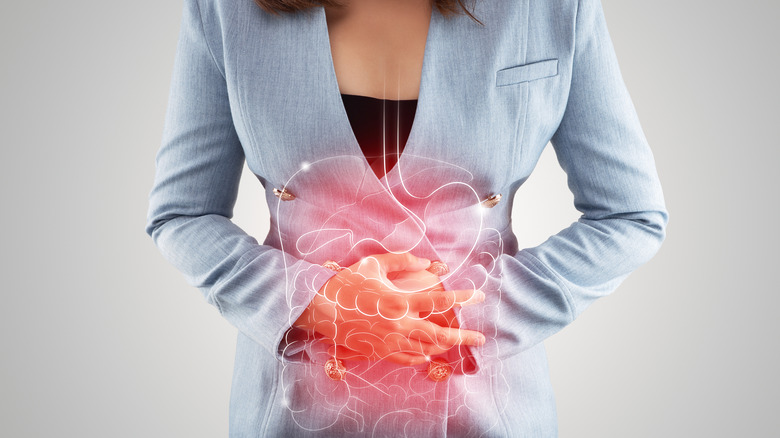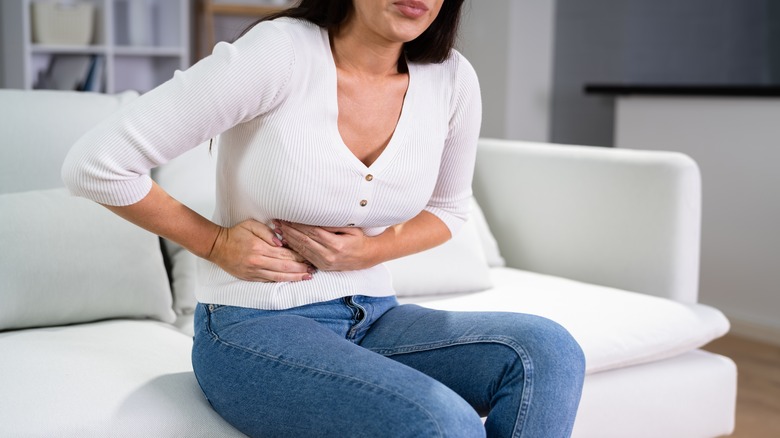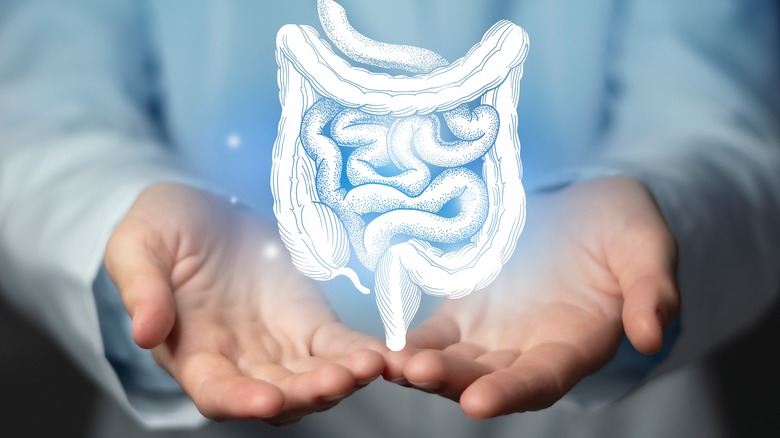Diverticulitis Versus Ulcerative Colitis: What's The Difference?
Various factors contribute to the development of bowel disorders. According to the Mayo Clinic, some bowel disorders, such as inflammatory bowel disease (IBD), are thought to have a genetic component and may be more common in people with a family history of the condition. Other risk factors of bowel disorders include gut microbiome changes, lifestyle factors such as exercise levels and smoking, and the use of medications such as nonsteroidal anti-inflammatory drugs, says Medical News Today.
Diet is another contributing factor for some symptoms and conditions. A diet that is low in fiber and high in processed foods can contribute to constipation and other digestive problems, per the University of California San Francisco.
Diverticulitis and ulcerative colitis can both affect the digestive system, but they have some important differences when it comes to causes and symptoms. Likewise, treatment options depend on the specific type and severity of the disorder, and may include medications, lifestyle changes, and in some cases, surgery.
Main differences between diverticulitis and ulcerative colitis
Diverticulitis happens when pouches in the colon's wall form and then become inflamed (via the Mayo Clinic). The pouches can form as a result of weak spots in the colon giving way under pressure.
Symptoms of diverticulitis can include abdominal pain and changes in bowel habits such as constipation or diarrhea, per the Mayo Clinic. The pain is usually — but not always — located on the left side of the lower abdomen, and may be severe. Other symptoms may include fever, nausea, vomiting, and abdominal tenderness. Some risk factors of diverticulosis include age, smoking, obesity, and a diet low in fiber and high in animal fat.
Ulcerative colitis, on the other hand, is a condition characterized by inflammation and sores in the large intestine (via the Cleveland Clinic). The condition can cause symptoms such as diarrhea, abdominal pain, rectal bleeding, and weight loss.
Ulcerative colitis is a chronic condition that usually requires ongoing treatment to manage symptoms, says the Cleveland Clinic. The exact cause of ulcerative colitis is unknown, but it is thought to be related to immune dysfunction, in which the body's immune system attacks healthy cells in the digestive tract, notes the Mayo Clinic.
Common treatments for ulcerative colitis and diverticulitis
Although diverticulitis and ulcerative colitis both affect the digestive system, treatment for each condition varies. Treatment for diverticulitis often involves antibiotics to clear the infection and a liquid diet to allow the bowel to rest and heal, per the Mayo Clinic.
According to the Cleveland Clinic, over-the-counter pain medications may also be used to relieve abdominal pain. In severe cases, surgery may be necessary to remove the infected pouches or repair any tears in the colon, adds the clinic.
Ulcerative colitis is typically treated with medications to reduce inflammation and manage symptoms. More specifically, aminosalicylates and corticosteroids may be used to reduce inflammation in the colon (via the Cleveland Clinic). Immunomodulators, such as azathioprine and 6-mercaptopurine, can be used to calm the immune system and prevent it from attacking the cells in the colon, says the clinic.
In severe cases, surgery to remove part or all of the colon and rectum may be necessary to alleviate complications, or treat or prevent cancer, per the Cleveland Clinic.



